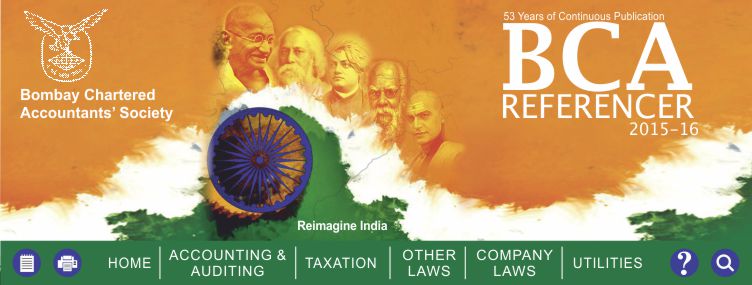Provisions of Section 50C in respect of transactions of land and buildings
|
- Section 50C provides that if the value stated in the instrument of transfer is less than the valuation adopted or assessed or assessable by the stamp duty authorities, such valuation of the stamp duty authorities will be considered as the sale consideration for the purpose of computation of capital gains arising on transfer of land or building or both. with effect from 1st April 2003 i.e. from A.Y. 2003-04
- Explanation 2 has been inserted in Section 50C w.e.f. 1-10-2009 stating that value “assessable” by the stamp valuation authority means the price which would have been adopted/assessed had the transaction been referred to such valuation authority for the payment of stamp duty. Prior to insertion of this Explanation, it had been held in many cases that for invoking the provisions of Section 50C, the transfer of property must first be registered for the purpose of payment of stamp duty. Now, by virtue, of this amendment, the above judgments are rendered redundant and the income-tax authorities are free to refer the property to stamp valuation authority irrespective of whether the same has been registered for stamp duty purposes or not.
- Provisions apply to transfer for a consideration of land or building if only held as capital asset at the time of such transfer. Thus, transactions of flats, shops, galas, factories being parts of buildings, etc. are covered by the provisions of section 50C.
- Under the Bombay Stamp Act, 1958, the stamp duty authorities have the power to revise valuation of immovable property within a period of 6 years from the date of stamping.
- The assessee may represent before the Income Tax Officer that the valuation adopted by stamp duty authorities is higher than the fair market value of property on the date of transfer and that the Income Tax Officer may refer the matter of valuation to the Valuation Officer of the Income Tax Department itself.
- If the valuation by the Valuation Officer of the IT department is lower, then such lower valuation will be adopted. However, if valuation by the Income Tax Valuation Officer is higher than the valuation adopted by the stamp duty authorities, the stamp duty valuation will be adopted and higher valuation by the Income Tax Valuation Officer will be disregarded.
- The DVO will have to follow the procedure under relevant sub-sections of section 16A of the Wealth Tax Act wherein the DVO will have to call for the records, give an opportunity of being heard to the assessee and lead evidences and then pass a speaking order of valuation. Further, the order of the DVO can be appealed against.
- Section 155(15) provides that where the value adopted by stamp duty authorities is revised due to an appeal, revision or reference, the assessment made on the basis of earlier valuation shall be amended and capital gains shall be recomputed on the basis of such revised value.
Back to Top
|
|
